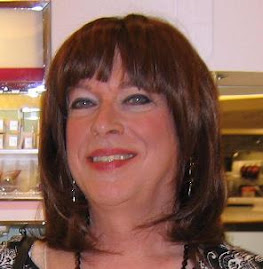Russian LGBT athletes hold Open Games despite official harassment, cancellations
MOSCOW — Outside, the clouds were as dark and threatening as the Russian authorities, but inside the brightly lit gym at the U.S. Embassy on Sunday, a team of Russian LGBT basketball players ran up and down the court, enjoying a moment officials had tried to deny them last week. They felt normal.The Russians, who were playing a team of diplomats, were members of the Russian LGBT Sports Federation. They had gathered in Moscow on Wednesday for a series of sporting tournaments called the Open Games, meant as an inclusive event celebrating the spirit of the Olympics, which ended in Sochi on Feb. 23.
But as the games began to get underway, one venue after another canceled on them. Hotels evicted them. Restaurants suddenly were too full to accommodate them. An outdoor ice rink was closed for technical reasons when a group arrived to skate. After a smoke bomb went off at a basketball tournament Friday, organizers told athletes they could not guarantee their safety.
“In the end, we discovered some very positive things,” said Konstantin Yablotskiy, co-leader of the sports federation. “Everyone stayed. The LGBT community is not ready to stay hidden. That’s a good sign.”
Last year, Russia passed a law making the “propaganda of nontraditional sexual relations” to minors illegal. Authorities said they were only protecting children from being lured into homosexuality or pedophilia. Critics said the law would encourage discrimination against gays, which officials from President Vladimir Putin on down denied.
The organizers of the Open Games said they had feared harassment from homophobes or the ultra-religious, but they were taken by surprise, they said, when they discovered that police and other officials were pressuring hotel and venue managers to cancel their contracts.
“Now we understand clearly that this law is not about kids,” said Elvina Yuvakaeva, the other leader of the sports federation. “We face real discrimination.”
The sports federation, she said, has avoided human rights activity, dedicating itself instead to athletic events. No one under 18 was allowed to register for any of the events, Yablotskiy said.
“There were no political statements or protests,” he said, another effort to avoid antagonizing the authorities. But it didn’t work.
“We think the authorities did not want us to send a positive message,” said Yablotskiy, who is a figure skater. “They did not want society to see that we are normal people, playing sports.”
The Open Games attracted 300 Russians from across the country, along with about 30 foreigners from the United States, Netherlands, Germany, Britain and Canada. The foreign participation offered some protection, Yablotskiy said. The smoke bomb exploded just after the German team had left the building Friday. A bomb scare was called in Saturday to an indoor soccer game just after the Dutch delegation — including the ambassador and minister of sports — had left, he said.
Every event but table tennis had to be rearranged at the last minute, with the organizers moving around secretly, assuming their telephones were being tapped. The table-tennis tournament apparently was not disturbed because the celebrity guest, U.S. Olympic gold-medal diver Greg Louganis, visited and signed up to play.
The invitation to the U.S. Embassy offered a respite, Yuvakaeva said.
“We can play without fear of dogs, police or bombs,” she said. “Right now, we can think only about sports. That’s important.”
The Russian players — eight women and two men — came from Moscow, Yekaterinburg, Tatarstan and Krasnodar. They were welcomed by Sheila Gwaltney, U.S. deputy chief of mission. “It’s a great honor to have you here,” she said. “It’s very important for us that human rights are respected for all.”
The diplomats, nine men and a woman, were American, Australian, German, French and British. The score was diplomats, 70, Russians, 55.
But Yuvakaeva, a snowboarder, said victory lay elsewhere.
“We found the power within ourselves to make these games happen,” she said. “Most of our participants were very happy, despite the bomb threats and everything else.”


I must preface this by stating that my BA is in international relations, with specialization in Soviet Area Studies. Obviously, that degree, plus $45 or so, will fill my gas tank, but I digress.
ReplyDeleteI recognize that Vladimir Putin has a difficult nation to manage, and a different set of realities than a US President. However, it's amazing how much like GW Bush Putin is. He kowtows to fundamentalist Christianity (the Orthodox Church), starts wars based on lies, and has fixed elections. One day, I would like to see the architecture of St. Petersburg first-hand, and own a Ural motorcycle with a sidecar, but I will not spend one dollar on Russian products until Putin is gone.
After the Berlin Wall came down, Russia evolved into a fairly friendly place for GLBT people under Yeltsin, at least in the large cities. I used to communicate online with a couple T girls who'd had no problems transitioning in Moscow and St. Petersburg, and had even undergone SRS there. However, around 2002, I stopped hearing from them, and received a "final message" from one that said 'It's no longer safe for me here, I've lost my job, and I'm emigrating to the Netherlands". I have never heard from her again, and I hope she's okay.
I greatly admire the courage of these athletes and event planners, for doing what they had to do to pull off their Games despite the obvious opposition of their own country.